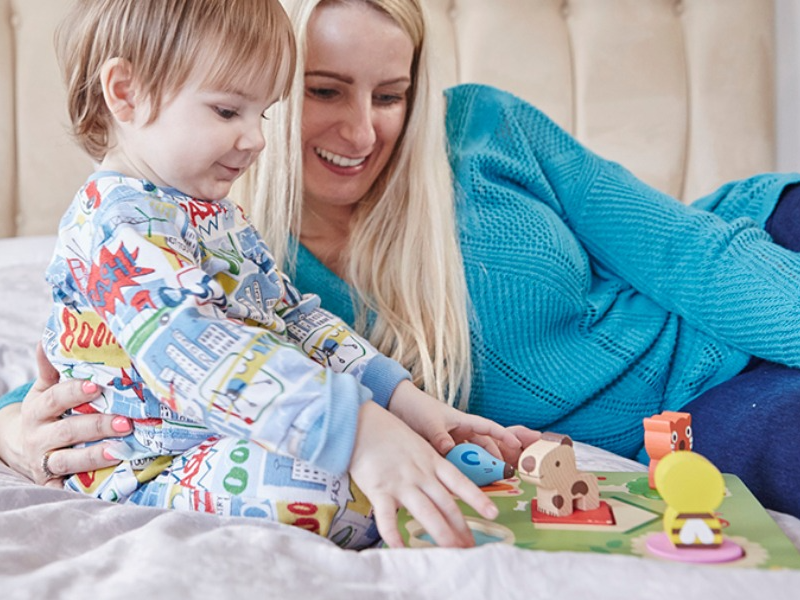
The Importance of Family in a Child’s Emotional Wellbeing
Editor | 07 Apr, 2023

Having a positive, understanding family is a blessing for every child. Family is there for every step of a child’s growth. They cater to the child’s emotional needs and consoles them in the time of need. Growing up with parents and siblings who don’t judge the child for his/her mistakes or don’t force them to be something they don’t like can be great for that kid’s emotional well-being. They grow up to be much more sensitive and tend to form healthy relationships in the future.
There are a lot of unwritten rules when it comes to family. Every member expects to be heard and empathized with. Thus, it is the responsibility of the entire family to listen to what the other member has to say. This behavior teaches a child to be sympathetic and compassionate towards others. They also grow up to be good human beings to appreciate the importance of other people in their lives.
A family should make their children understand what behavior is right and what is wrong in a polite manner. Every child tends to get a little irritable and even lash out at others when something bothers them. The family members must deal with the situation as calmly as possible. When the child sees compassion and care in the eyes of the family members, he/she automatically calms down and can talk about his/her problems peacefully. If the approach of scolding the child is adopted, then the child becomes more defensive and throws even more tantrums.
Sometimes, parents believe that it is their responsibility to protect their children from everything and provide them with all the comfort in the world. While this may be a very gratifying and quite understandable feeling, it is still not the best thing for a child’s emotional development. If the kids are coddled by their parents all the time, they don’t become equipped to deal with real life. Parents who let their children explore new opportunities and work hard for themselves allow them to take a dip in the world that is filled with struggle and hard work. Those children can adapt much more easily than the ones who were pampered.
Whenever a child dreams about achieving something or wants to create something, their family’s approval matters the most to them. So, it is the responsibility of the family members to hear the idea and give positive feedback to the child. As if that situation is not dealt properly, the child feels inferior and doubts their ideas and creativity. This may also have a long-term impact of holding their ideas in themselves even at the workplace fearing that they would be ignored or laughed at.
Whenever a family member makes a mistake or hurts somebody’s feelings, they need to acknowledge their mistake and apologize. This builds a sense of forgiveness and courage in the children. They understand the importance of apologizing from a young age and don’t their egos affect it.
Families should practice the act of expressing their love freely. Parents should be able to hug their kids and say ‘I love you’ without being used. And the children should be allowed to express their love without being interrupted. This behavior ensures the children that expressing love is not embarrassing or something that should be avoided. It helps them create many healthier relationships in the future with their spouses and children.
Parents or even siblings should not taunt a child whenever they make a mistake. Taunting or picking on a child can disrupt their confidence and make them self-doubting. Parents should adopt a much more compassionate technique to make the child understand his/her mistake and allow them to rectify it. This teaches the kid that it’s okay to make mistakes as long as you’re willing to accept them and work hard enough to make it right. It also teaches them the importance of forgiving people when they sincerely accept their mistakes.
Families have the responsibility to build a child’s confidence and make them aware of their emotions. Sometimes, when family members don’t share their feelings or ignore the much deeper emotional connection, they become trapped in their minds. And the child learns the same habit of keeping everything in their heads and dealing with it alone. This can result in the poor emotional development of the child. Thus, everybody in the family should be welcome to express their feelings and should be treated with respect and healthy suggestions.
A child’s emotional development is very crucial, and it mainly revolves around the behavior of his/her family. What children see in their family during the initial years is what they learn to implement further in life. Thus, the family holds great significance in a child’s emotional well-being.
By: Simran Raghav
Related News
- Crime by Juveniles in India Is On the Rise
- Hands-on Guidelines for Young Parents
- Groom Your Child’s Skills at Every Step
- Discipline without Punishment
- Is your child good at decision making?
- Forgiveness- A Fundamental Facet
- Role of Leadership in Student’s Life
- Hard Work Beats Talent
- A Sound Mind in a Sound Body
- Raise Your Voice
- Never Overprotect a Child
- Parents Coping with the Young Generation
- 10 Ways To Be The Perfect Parent
- Tips To Make Your Child A Successful Leader

